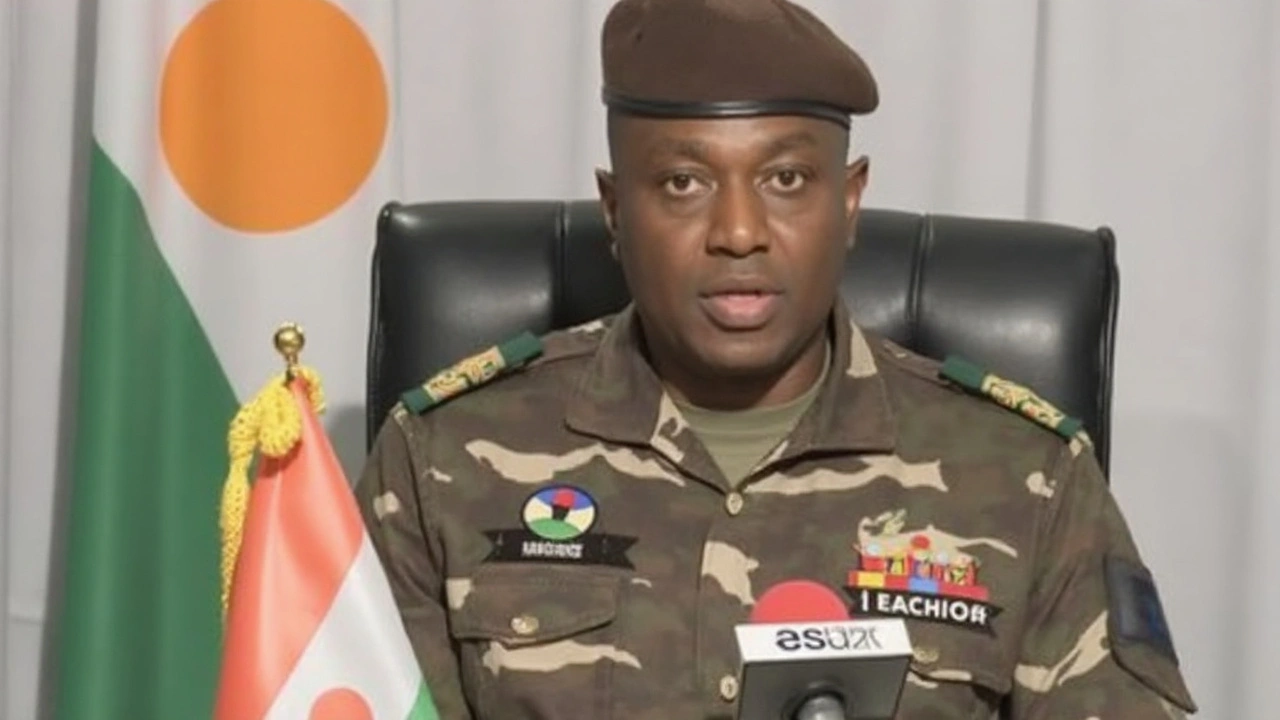Tchiani Controversy: Allegations of Collusion Shake West Africa
Tchiani's Controversial Allegations Against Nigeria and France
In a move that has stirred the political waters in West Africa, Niger’s military leader, Brigadier-General Abdourahmane Tchiani, leveled serious accusations against Nigeria and France. During a BBC Hausa interview, Tchiani claimed these nations were conspiring to destabilize Niger. He suggested that France had financially backed Nigerian President Bola Tinubu to set up military bases in Borno State. But here's the kicker: these accusations lack any credible evidence and have been met with swift denials from Nigeria.
Nigeria, focusing on its commitment to regional security, was quick to counter these claims. Key figures from the government, including Minister of Information Mohammed Idris, National Security Adviser Nuhu Ribadu, and Foreign Affairs Minister Yusuf Tuggar, dismissed the allegations as baseless. Ribadu was particularly vocal, questioning why Nigeria would destabilize a neighboring country, especially one with which it shares historical bonds and ongoing partnerships.
Lack of Evidence and Regional Repercussions
The spotlight on Tchiani's claims sheds light on several issues. Firstly, the alleged collusion seemed to rely heavily on a debunked video from 2013, which commentator Mahdi Shehu presented as evidence. This video was identified by investigative journalism from *Daily Trust* as depicting ECOWAS peacekeeping forces in Mali, rather than recent Franco-Nigerian activities. Moreover, journalists who visited strategic border areas like Ruwa Wuri, Balle, and Gada found no indications of foreign military installations, making Tchiani's assertions seem even shakier.
Observers suggest that the accusations might be a strategy to turn away from Niger’s mounting internal issues. Following the July 2023 coup, which unseated democratically elected President Mohamed Bazoum, Niger has seen economic sanctions, diplomatic isolation, and a shift towards Russian military support after France withdrew its troops. This backdrop of instability provides a likely context for Tchiani's claims, which some analysts see as an effort to rally nationalist sentiments and distract from domestic challenges.
The episode also reflects broader regional tensions. Tchiani's narrative taps into a growing disillusionment with Western influence, particularly French involvement, across West Africa. Niger, alongside neighboring countries like Mali and Burkina Faso, has been part of the Alliance of Sahel States, distancing themselves from ECOWAS's historically pro-Western alignment. Meanwhile, Nigeria's leadership in ECOWAS, particularly President Tinubu’s support for sanctions against Niger, has further complicated inter-country relations.
Despite the swirling controversies and competing narratives, there's still a degree of collaboration happening under the table. Joint efforts to guard against jihadist threats, coming from groups like Boko Haram and ISWAP, continue between Niger and Nigeria. These collective security measures underscore a complex reality where cooperation is essential, even as political rhetoric stirs division.
